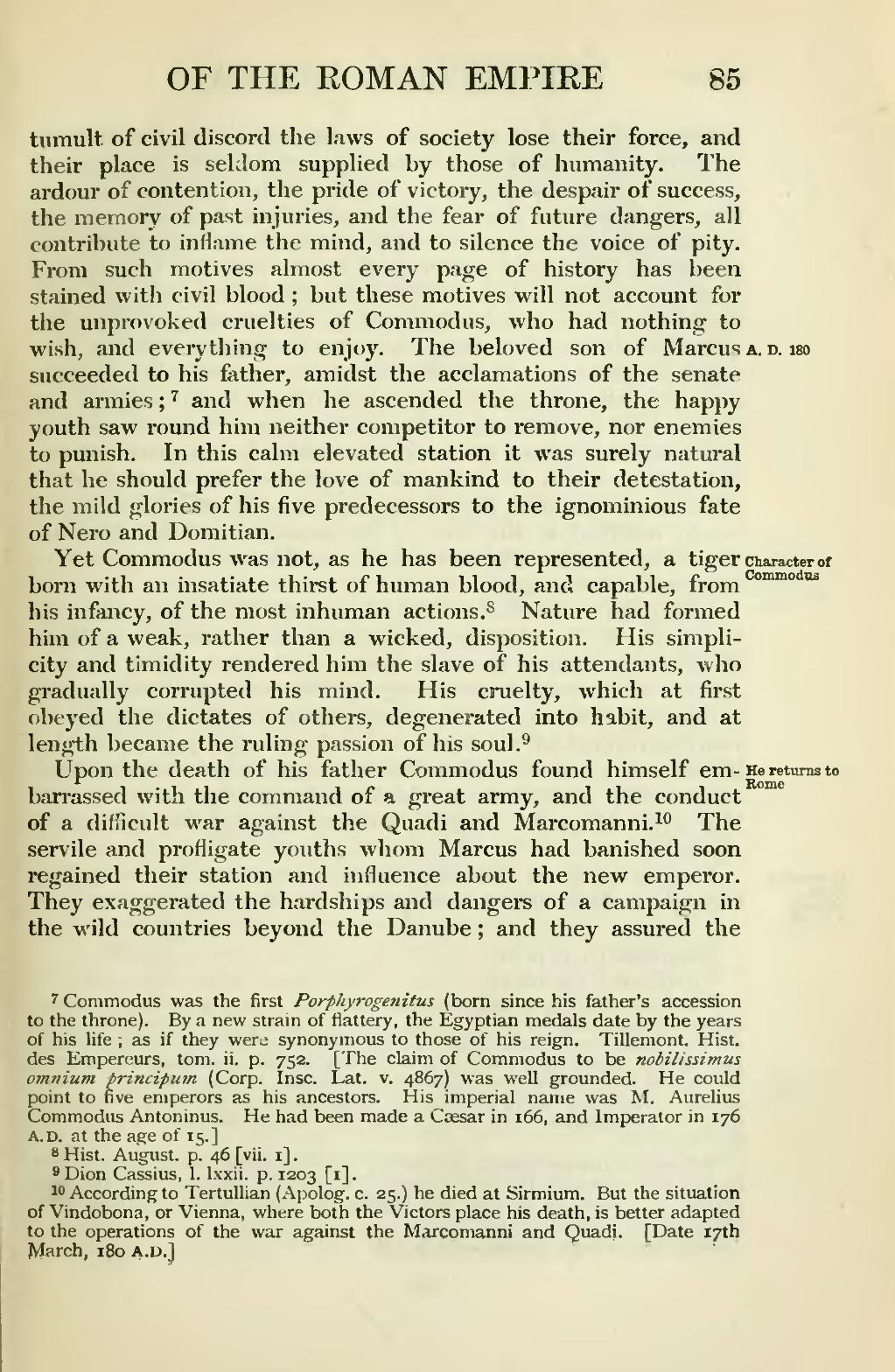tumult of civil discord the laws of society lose their force, and their place is seldom supplied by those of humanity. The ardour of contention, the pride of victory, the despair of success, the memory of past injuries, and the fear of future dangers, all contribute to inflame the mind, and to silence the voice of pity. From such motives almost every page of history has been stained with civil blood; but these motives will not account for the unprovoked cruelties of Commodus, who had nothing to A.D. 180 wish, and everything to enjoy. The beloved son of Marcus succeeded to his father, amidst the acclamations of the senate and armies;[1] and when he ascended the throne, the happy youth saw round him neither competitor to remove, nor enemies to punish. In this calm elevated station it was surely natural that he should prefer the love of mankind to their detestation, the mild glories of his five predecessors to the ignominious fate of Nero and Domitian.
Character of Commodus Yet Commodus was not, as he has been represented, a tiger born with an insatiate thirst of human blood, and capable, from his infancy, of the most inhuman actions.[2] Nature had formed him of a weak, rather than a wicked, disposition. His simplicity and timidity rendered him the slave of his attendants, who gradually corrupted his mind. His cruelty, which at first obeyed the dictates of others, degenerated into habit, and at length became the ruling passion of his soul.[3]
He returns to Rome Upon the death of his father Commodus found himself embarrassed with the command of a great army, and the conduct of a difficult war against the Quadi and Marcomanni.[4] The servile and profligate youths whom Marcus had banished soon regained their station and influence about the new emperor. They exaggerated the hardships and dangers of a campaign in the wild countries beyond the Danube; and they assured the- ↑ Commodus was the first Porphyrogenitus (born since his father's accession to the throne). By a new strain of flattery, the Egyptian medals date by the years of his life; as if they were synonymous to those of his reign. Tillemont. Hist, des Empercurs, tom. ii. p. 752. [The claim of Commodus to be nobilissimus omnium principum (Corp. Insc. Lat. v. 4867) was well grounded. He could point to five emperors as his ancestors. His imperial name was M. Aurelius Commodus Antoninus. He had been made a Cæsar in 166, and Imperator in 176 A.D. at the age of 15.]
- ↑ Hist. August, p. 46 [vii. 1].
- ↑ Dion Cassius, 1. lxxii. p. 1203 [i].
- ↑ According to Tertullian (Apolog. c. 25.) he died at Sirmium. But the situation of Vindobona, or Vienna, where both the Victors place his death, is better adapted to the operations of the war against the Marcomanni and Quadi. [Date 17th March, 180 A.D.]
